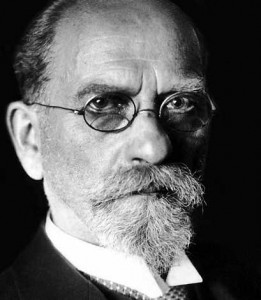 In Ideas, Book I Husserl develops his mature theory of intentionality as the fundamental structure of consciousness composed of noetic, subjective moment on the one hand, and noematic, objective moment on the other. In other words, intentionality is the sense-bestowing relation between mental process and its objective correlate, its sense: the noema.
In Ideas, Book I Husserl develops his mature theory of intentionality as the fundamental structure of consciousness composed of noetic, subjective moment on the one hand, and noematic, objective moment on the other. In other words, intentionality is the sense-bestowing relation between mental process and its objective correlate, its sense: the noema.
The notorious difficulty of Husserl’s passages on noetic-noematic structures prompted the contemporary debate about the role and ontological status of the noema. Continue reading
